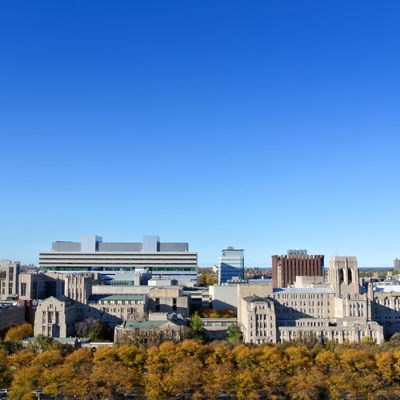
When I wrote a year and a half ago about the return of political correctness, I noticed the crucial role played by the notion of “safety.” Obviously, safety is a good thing, as — for that matter — are sensitivity and opposition to racism and sexism. The trouble was that adherents of p.c. were defining safety as the absence of contrary points of view. Safety has become the rationale for suppressing offending speakers or reporters or plays or pedagogy or student op-eds or columns or speeches or political organizing. The increasing prevalence of this perspective forces the left to make an important choice, to accept or reject rules of discourse which justify the suppression of dissenting beliefs on grounds of safety.
In the wake of publishing that essay, I noticed something else about the response to the subject on the left: Many prefer not to make this choice. While some progressives defend p.c. ideology, and other progressives of course oppose it, a very large group in the middle object to criticism of political correctness without having any desire to defend it. This anti-anti-p.c. faction tends to lash out against any criticism of political correctness, focusing on the critics and their failures, without addressing the underlying question.
This tendency emerged once again in the wake of the University of Chicago’s letter to incoming students, which promised, “Our commitment to academic freedom means that we do not support so-called ‘trigger warnings,’ we do not cancel invited speakers because their topics might prove controversial, and we do not condone the creation of intellectual ‘safe spaces’ where individuals can retreat from ideas and perspectives at odds with their own.” The anti-anti-p.c. response has seized upon the ambiguities of these terms. Slate’s L.V. Anderson argues, “‘Safe spaces’ on campus typically describe extracurricular groups that are intended to be havens for historically marginalized students.” Vox’s German Lopez makes the same contention: “If I, as a gay man, want to meet other guys and talk to other guys about guys without the fear of bigotry, it would be nonsensical to go to a straight bar. A gay bar is obviously a better, safer place for that.” Another pro-safe-space piece in Vox, by Emily Crockett, argues, “Safe spaces emerge organically, like hair salons, gay clubs, or black churches.”
It is very strange to read Chicago’s letter as a threat to forbid outings to gay bars or black churches. The letter is obviously directed at the common practice of delineating common public spaces on campus, like classrooms or auditoriums, to be “safe spaces” where political discourse must adhere to left-wing dogma.
In yet another pro-safe-space op-ed for Vox, Kevin Gannon argues that the letter is intended to discourage protest. “If you’ve watched students at other campuses, the dean warns, don’t get any crazy ideas about protesting invited speakers: ‘we do not cancel invited speakers because their topics might prove controversial.’” That is a similarly wild misreading. Literally nothing in Chicago’s letter discourages protest of speakers. Instead the letter states that the administration won’t cancel speakers merely because protesters demand it, a frequent occurrence.
Another category of response suggests suspiciously that Chicago may be motivated by the desire to curry favor with conservative parents or donors, a theme emphasized by Gannon, Jay Michaelson, and Brad DeLong. This is possibly true. Sometimes people have impure motives for doing the right thing. But this kind of response is the sort of tribalism that can be used to reject any criticism of one’s own side. Many conservatives who don’t want to defend the lunacy of Donald Trump will instead change the question to smug liberals who stand to gain from attacking him.
In a polarized country, it is uncomfortable to question people on your own political team. It’s more convenient to wave away an internally divisive issue by instead defending the right to go to a gay bar or attend a protest, or to question the unclean motives of donation-hungry college administrators. But the p.c. left is proposing to change norms of discourse within progressive spaces in a fundamentally illiberal way. Continually changing the subject isn’t going to make this question go away.






























